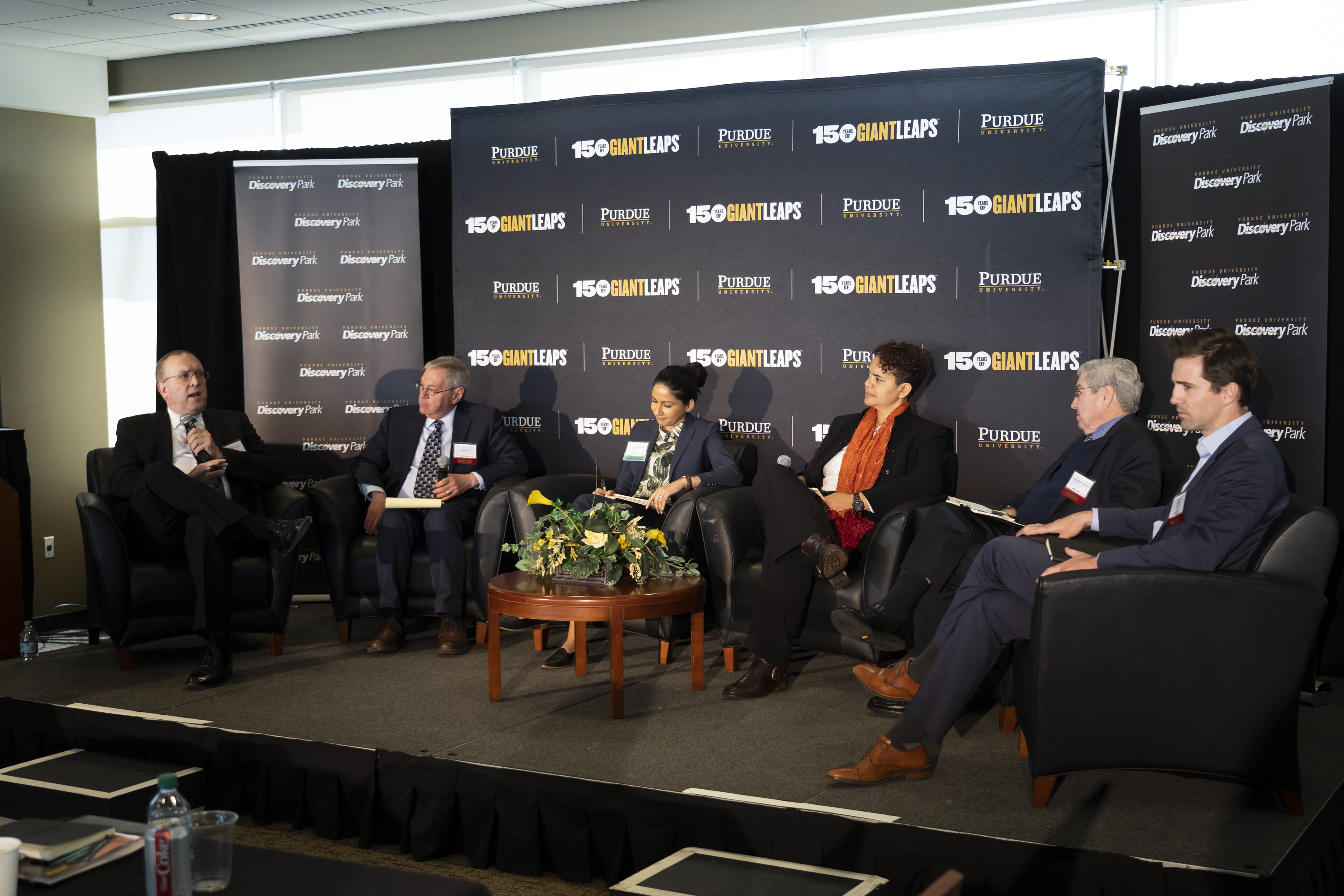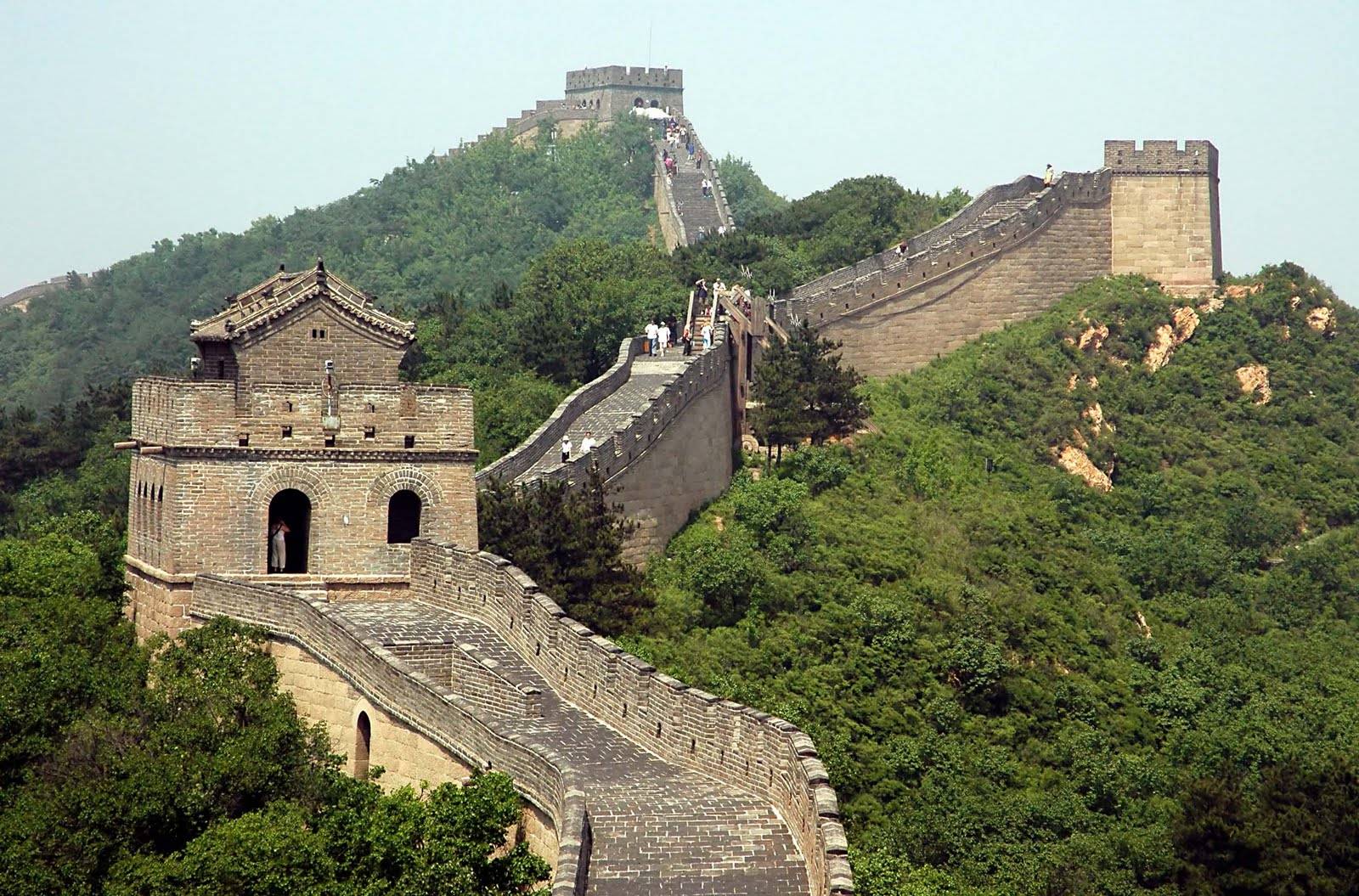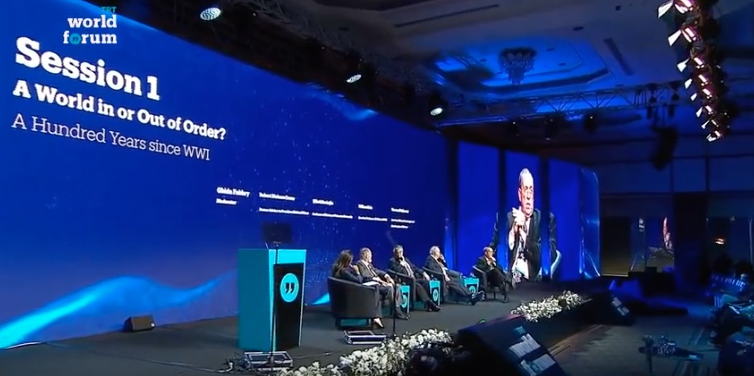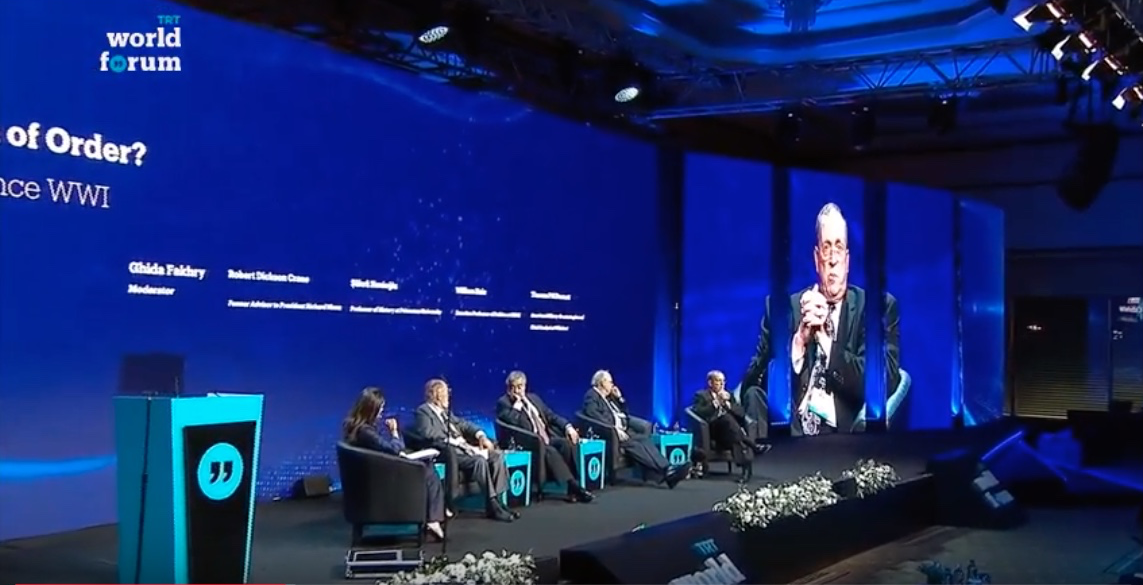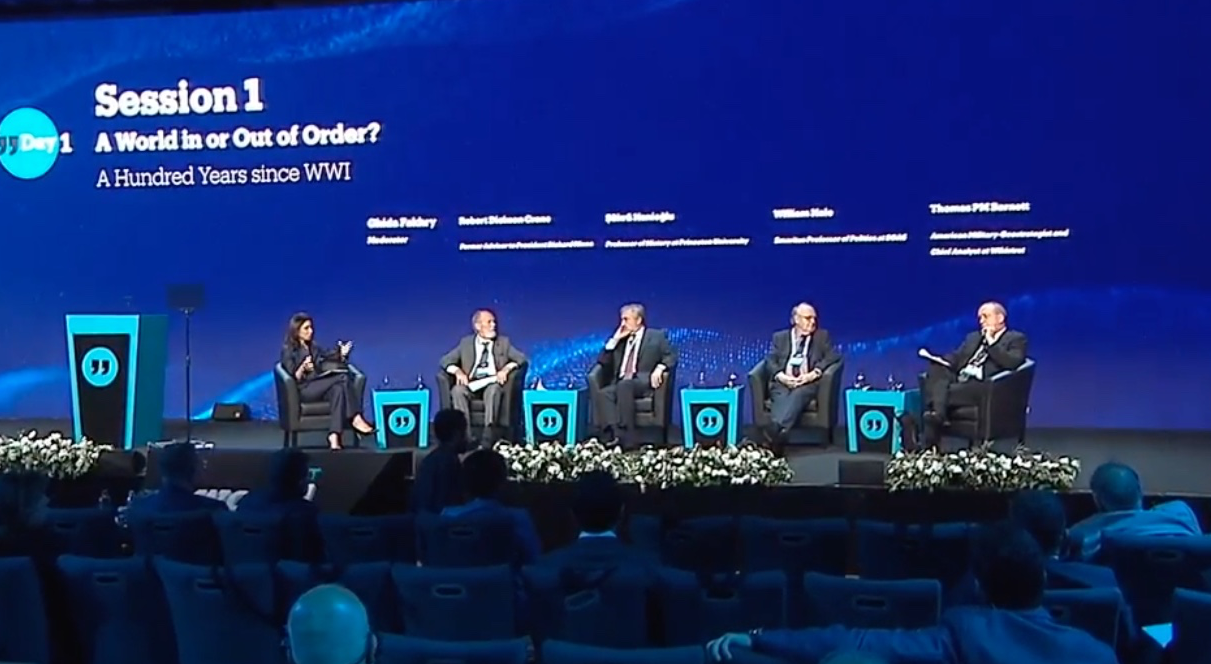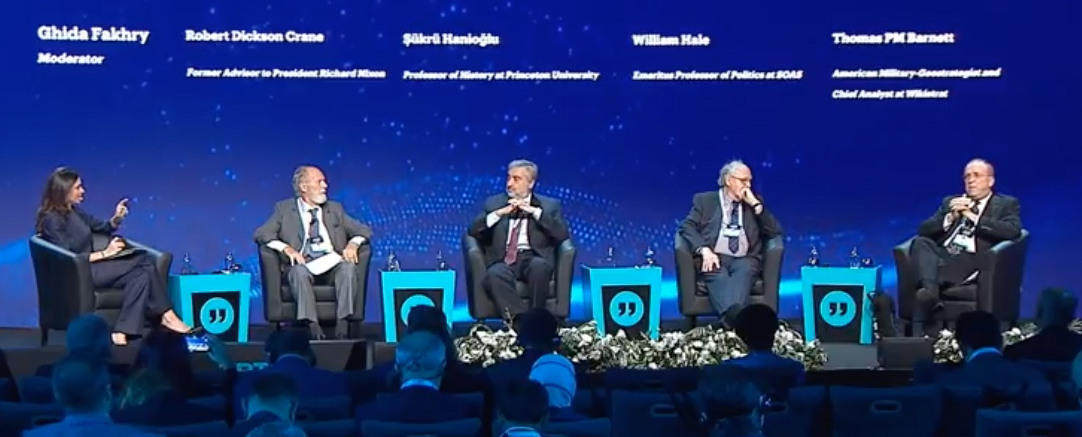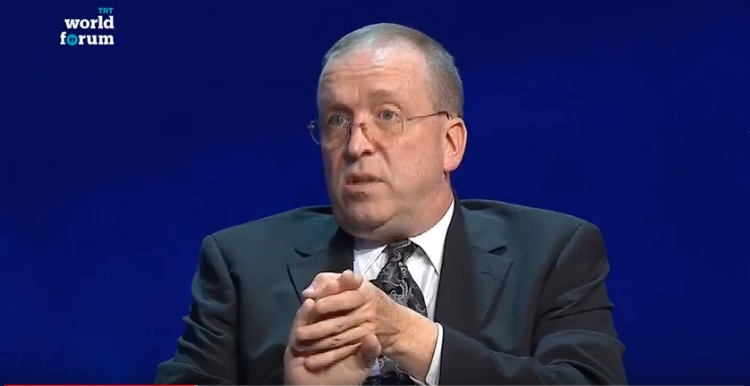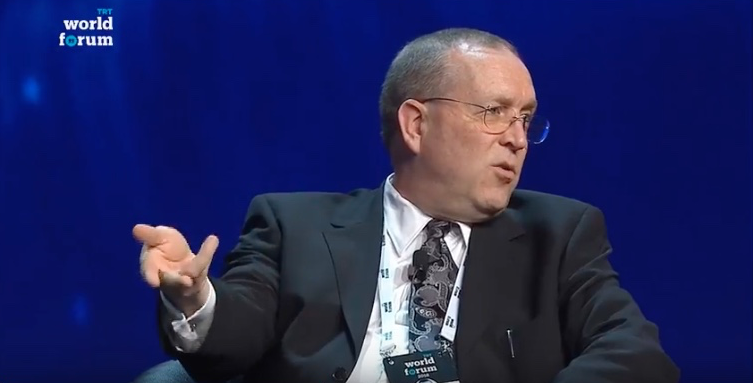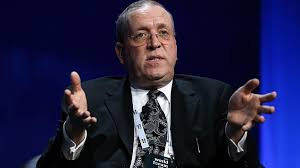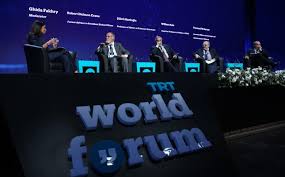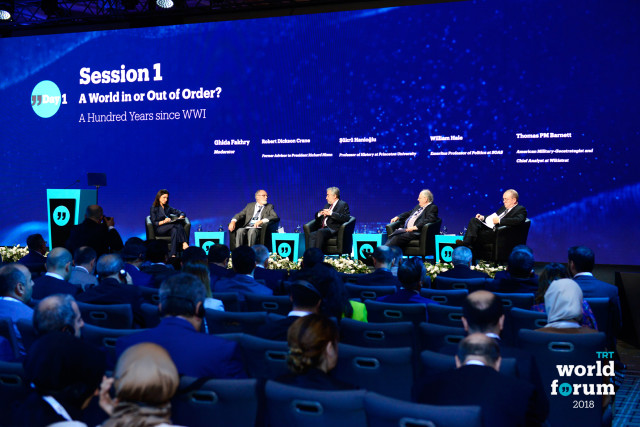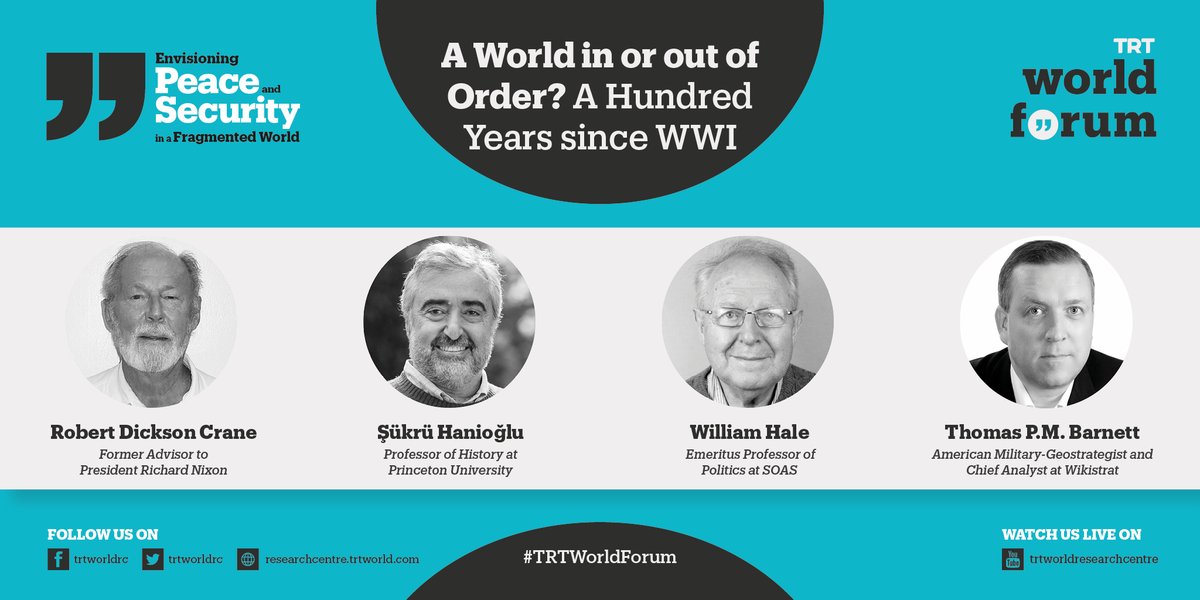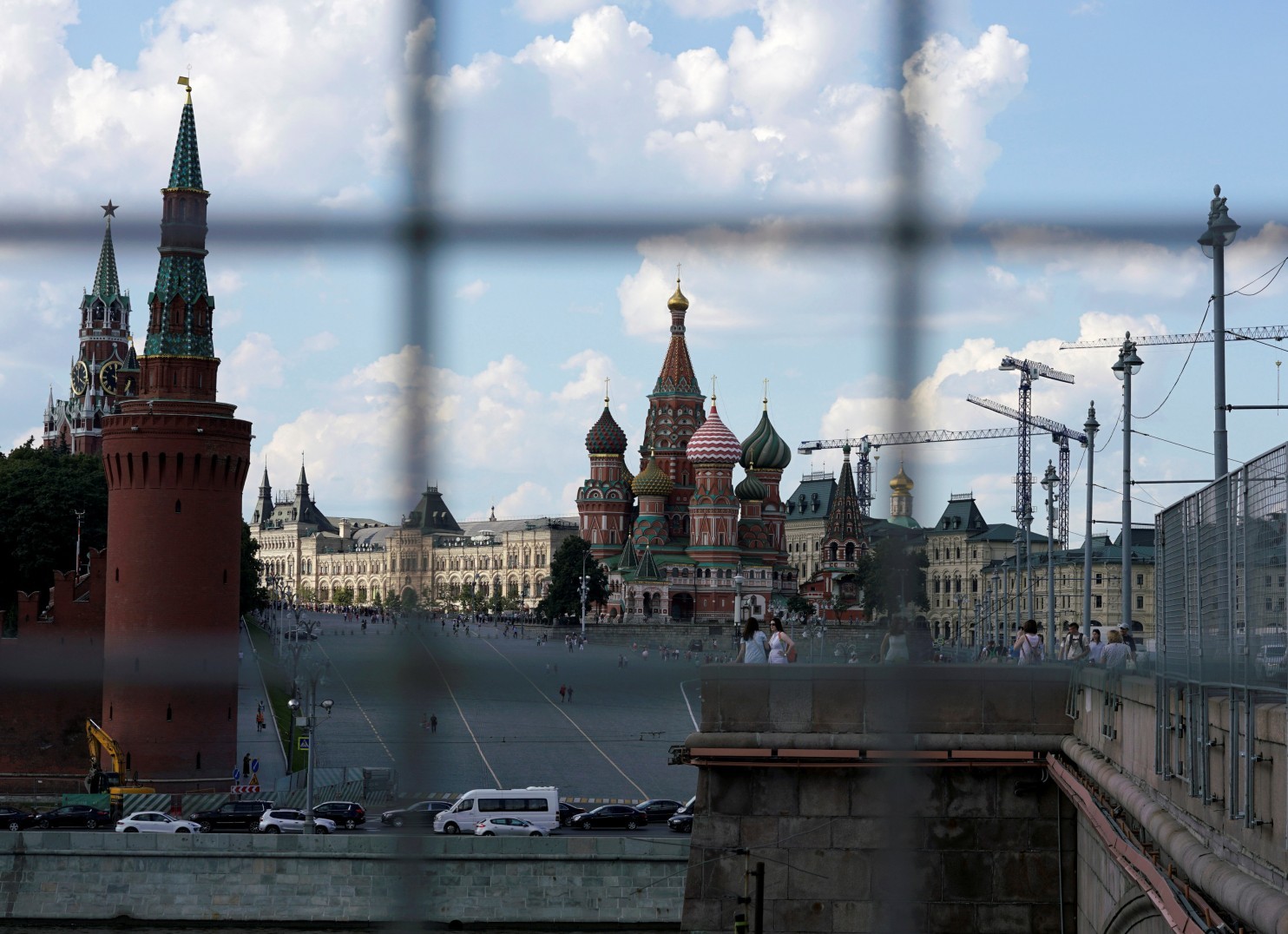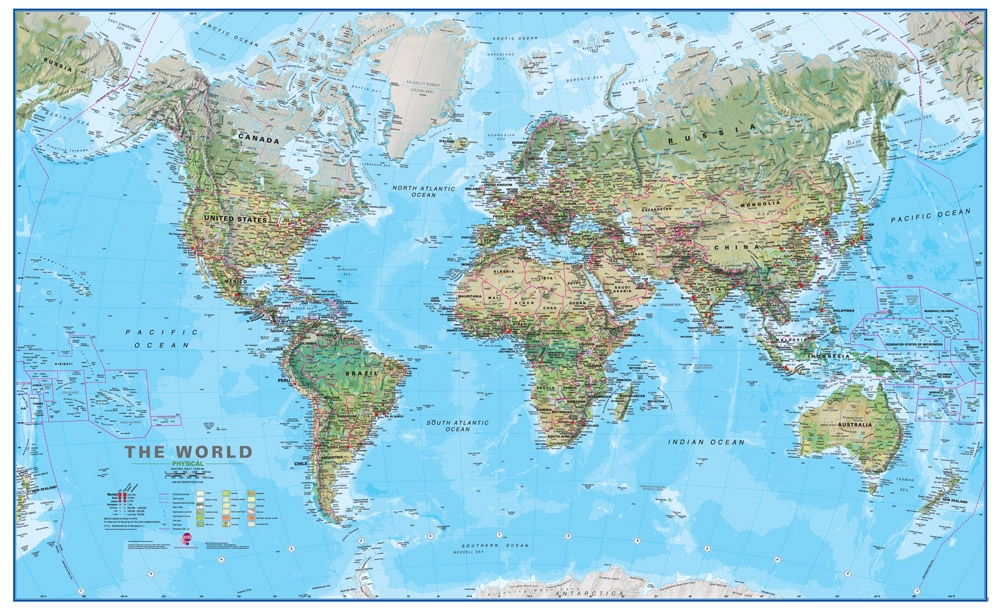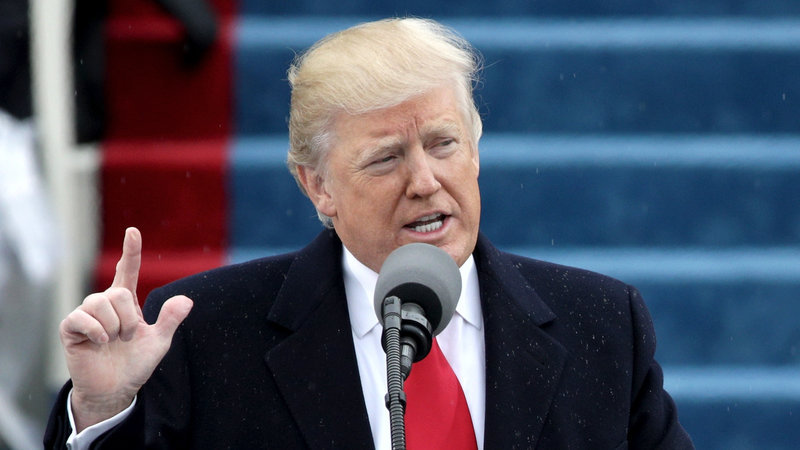 Alex Wong/Getty Images
Alex Wong/Getty Images
It was always going to be the case that America would eventually want/have to renegotiate its relationship with the world and the many great powers whose rise we encouraged and accommodated. Eight years ago I published an entire book (Great Powers) that laid out a host of accommodations, deals, renegotiations, compromises, etc. that we'd have to pursue to re-rationalize our relationship with the world and globalization itself - the most obvious being we'd have to get along with, and forge new, more realistic and equitable relationships with New Core powers like China, Russia, Turkey, Iran, and so on. As I have maintained for a couple of decades now, globalization comes with rules - but not a ruler.
President Obama did a lot of good things while in office, most notably symmetricizing the war on terror (our SOF/drones against their badasses). But he also engaged in the ill-conceived and poorly executed "Asian pivot," created a serious great-power leadership vacuum in SW Asia (into which strode Russia and Iran), and abandoned all pretense of responsible nation-building (logically adhering to the pottery barn rule - yes, but doing it by sharing both the burden and the decision-making with all those far-more-local-and-incentivized New Core powers named above). By doing these things, Obama encouraged the "G-Zero" atmosphere that President Trump now exploits to complete his very dark take on the state of America and the world - a take that allows him to regurgitate the "America First" vision of pre-superpower America.
That vision is arguably the greatest threat that our democracy faced in the 20th century, and, to my deep dismay, we toy with it again in the 21st.
Do I think it will succeed as a lasting grand strategy? No.
Do I think this administration will be allowed to pursue it sufficiently to inflict great damage on the global economy (and us by rebound)? Also no, but I will admit to worrying greatly about that possibility. American-hatched-and-nurtured globalization is here to stay. We simply were too successful in spreading it, creating vast and deep constituencies for its survival in a host of rising economies - most notably in the BRICS (whom I have identified for a dozen-or-more years now as our natural allies of this century).
Do I think there's a better and right way to do this? Sure.
Much of what President Trump said today contained grains of truth - very important grains of truth:
- America did seek to encourage the rise of other powers - at its own expense.
- America did seek to spread liberal trade - at its own expense.
- America has provided more security to the world than the world did in return.
And you know what? Our efforts fueled the greatest advance in human development, peace, prosperity, and freedom that the world has ever witnessed.
Simplest numbers:
- In 1950, 55% of the world's population was living in extreme poverty. Today that number is just under 10%.
- In 1950, only 23% of the world's population could be described as middle-class. Today that number is 58%.
All that happened as the world ballooned from a 1950 population of 2.5B to 7.3B today.
That means that, in absolute terms, the number of people living in extreme povery decreased from 1.4B in 1950 to 650m today, while the middle class skyrocketed from 575m to 4.2B! So, we cut extreme poverty in half - in absolute terms, and increase the global middle class over seven-fold.
Amazing stuff.
That's what American "empire," "hegemony," "militarism," "imperialism," etc. actually wrought.
Did we stress the planet? Yes.
Was it worth it? Most definitely. Nobody living in extreme poverty gives a rat's ass about the environment - nor should they. You want environmentalists? Get yourself a big middle class.
Does our role in enabling the globalization of the international liberal trade order (based on the model of these United States) these past seven-plus decades mark us as the world's greatest nation? Absolutely.
Were we slated to play this pre-eminent role forever? Hardly.
Did the time come, in the Great Recession, for America to begin re-calibrating its role in the world. Yea, and I wrote a whole book on that.
So am I surprised or dismayed by Trump's ascendancy? No to the first, yes to the second. You give me Mike Bloomberg in exactly the same role, and I'm loving it.
The correction is long overdue, and it's driven by what I (in Blueprint for Action) once dubbed any country's "caboose" - namely, its conservative, rural, interior poor. What I said back then (2005) is what I still say: The train's engine can travel no faster than its caboose.
That's true of globalization itself and it's true of every nation in the global economy - including ours. Because, if you go too fast, you end up like Iran after the Shah's White Revolution - in a reactionary backlash that can f*#k you up for a very long time.
How much is Obama to be blamed for not doing more to address America's "caboose" these past 8 years? No more than the GOP House and Senate membership. As I have stated for many years now, the Boomers have been a complete disaster as a generation of political leaders (and the Gen Xers pulled in their wake haven't been much better up to now). [Note: I remain supremely optimistic about the Millennials for many reasons long and often noted in past writings and speeches.]
In the end, America was going to flirt with economic nationalism. We went overboard on security after 9/11 (forcing the Obama retrenchment), and it was inevitable that the Great Recession would eventually push us to experiment with the self-destruction that is trade protectionism, wall-building, economic nationalism, and the mercantilist dream of winner-takes-all. In short, when we want change, we tend to freak out. That's the hidden opportunity cost of democracy. We don't do incremental change very well. That's why the Founding Fathers built in so many checks and balances - all of which I expect to function well across the Trump administration.
The pity is, America can and should renegotiate a more self-preserving economic relationship with the global economy. I truly believe the world knows it's time and it's the fair thing to do. And frankly, with China so "risen," the world economy no longer needs to rely on the US consumer so much, meaning we have it within our power to genuinely self-correct greatly while demanding appropriate "gives" from the rest of the world for whom we did so much to fuel globalization's successful rise and continuing durability.
But, again, we're not like that. When we freak out in any direction, it's all the way. That's what generations and generations of A-type personalities interbreeding gets you - and Trump is the perfect embodiment of that self-centered ambition and aggression.
My best positive spin on Trump is that he's crazy like a fox and will exploit all his over-the-top rhetoric and threats to achieve the much-needed recalibration between America and the world.
But I will readily admit that I fear he's an overboard character elevated by America's typically overboard political impulses, and that we'll learn many hard lessons over the next four years.
Either way, I've often said in speeches that America gets the president we need - and deserve, even as the course corrections pursued are often way too much.
But that's just who we are.
I will say, though, that I don't much care for this America the aggrieved persona. It strikes me as too full of self-loathing and far too fearful. I prefer the "better angels" and "shining city on a hill" stuff.
Because that's actually more of who we are.
But, rest assured, the Great Recalibration that I spent chapter upon chapter detailing in "Great Powers" is most definitely in full swing now. Obama got it rolling but it's moving into high gear with Trump. It could be done right and I expect it to be done mostly wrong by this raucous crew, but the effect is the same. [Much like Bush with the Big Bang strategy: If he does Iraq right, he scares the crap out of the region and triggers tumultuous change. And if he does Iraq badly, same outcome.]
America is headed toward a future of diminished global leadership: this is - and always has been - the price of our fantastic success in spreading American-style globalization.
Yes, the world is full of idiots who will proclaim America's relative "decline" in zero-sum terms. But don't let them bother you. What we did for humanity is the greatest single achievement ever accomplished by a nation-state - in addition to being the most Christian display of generosity and sacrifice by a country.
Point being: America has never been greater than it is now.
Remember that in the weeks and months and four years ahead.
 Monday, August 12, 2019 at 1:48PM
Monday, August 12, 2019 at 1:48PM 












